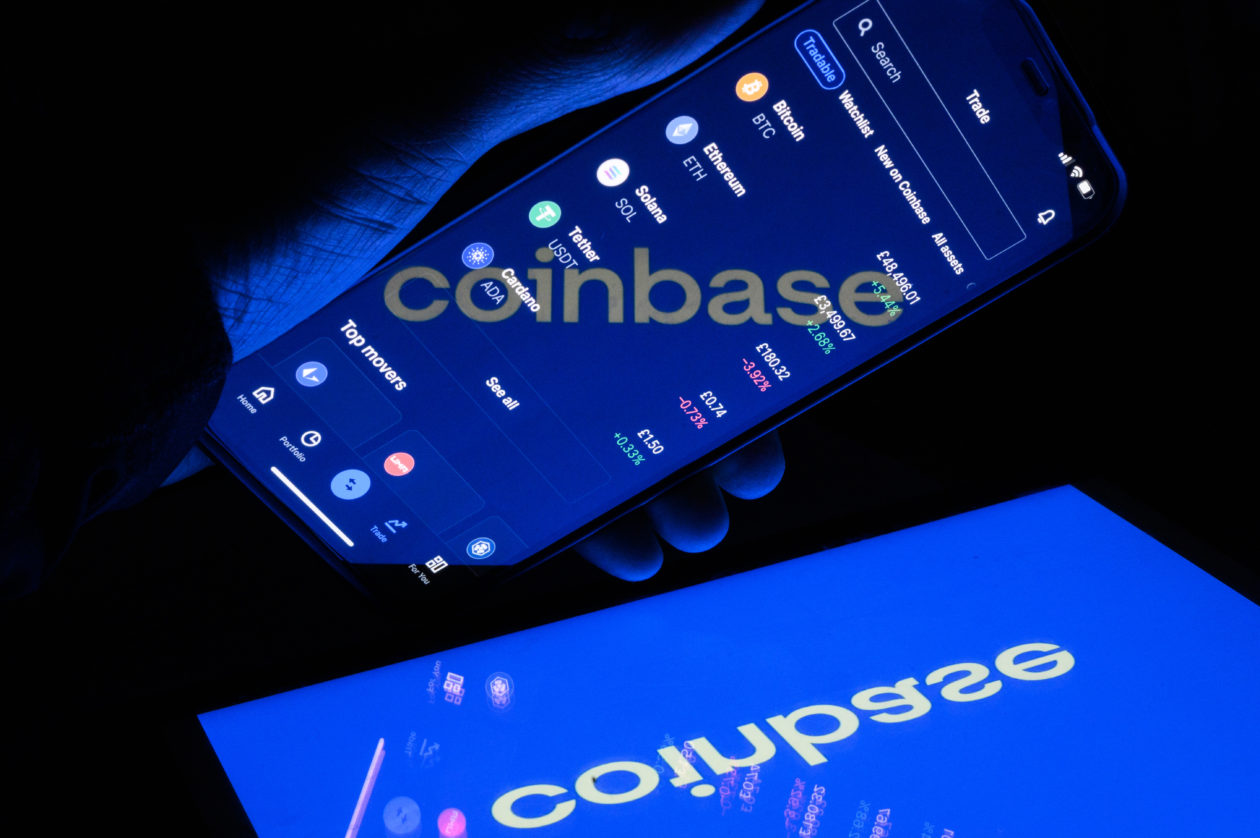Coinbase, the largest cryptocurrency exchange in the U.S., is mulling suing some 1,000 of its users in the eastern European nation of Georgia for exploiting a pricing glitch on Aug. 29 that saw the local currency, the lari, priced at US$290 on the exchange, rather than US$2.90, for about six hours, according to a report by CoinDesk.
The error was the fault of a third party, the crypto exchange said.
A Coinbase spokesperson told CoinDesk that they are working with law firm Gvinadze & Partners to assist in retrieving the improperly credited funds. The spokesperson did not comment on the specifics of any possible litigation, but said that any user who returned the funds will not be subject to any further litigation.
Users made significant profits as a result of the glitch. In that six-hour window, one Bitcoin was trading for 5 million-6 million lari, around US$1.7 million apiece, while the average price in late August stood at 55,000-60,000 lari.
Several users who had received the improper funds told CoinDesk that their bank accounts had been frozen in the hours after they had cashed out from the platform, but those freezes were reversed in subsequent days.
Any litigation would not simply be about the value of the lost funds, as users in question account for just 0.001% of Coinbase’s total user base.
Paul Haswell, a Hong Kong-based partner with law firm Seyfarth Shaw LLP, told Forkast that both parties are subject to the same law governing mistakenly received property.
“In general, [with] any property that comes in your possession by mistake that isn’t yours, either you would be liable in the law of that jurisdiction or the individual who’s accidentally transferred it to you could sue you to get it back,” he said. “Despite what some people think, there is no finders keepers law.”
“Despite what some people think, there is no finders keepers law
Paul Haswell, Hong Kong-based partner with law firm Seyfarth Shaw LLP
In most cases, cryptocurrency is more likely to be treated as property rather than money, though exact cases would differ from jurisdiction to jurisdiction, he added.
Haswell told Forkast that Coinbase would have every right to sue for the fund’s return, unless the user agreement had a clause to honor incorrectly priced transfers.
Coinbase is not the only crypto exchange that has had trouble keeping track of its funds.
In May 2021, Singapore-based crypto exchange Crypto.com accidentally transferred AU$10.4 million (US$7.15 million) to an Australian woman instead of an intended refund of AU$100 (US$68), and did not realize the error until an audit was conducted in December 2021.
When Crypto.com finally attempted to retrieve the money it found that the recipient had already used some of the cash to buy a house in north Melbourne.
A judge in Victoria’s Supreme Court ordered in August 2022 that the house be sold and all funds – including AU$27,369 in earned interest – be returned to Crypto.com.
The South Korean Supreme Court took a different approach in December 2021 when it ruled out pressing any charges of embezzlement or misappropriation against a local investor who received 199.999 Bitcoin accidentally in 2018.
However, the basis for this decision was on account of the absence of a legal basis for cryptocurrencies at the time.
Similar mistakes have also occurred in the fiat world.
In September, the 2nd U.S. Circuit Court of Appeals in Manhattan ruled that Citigroup was entitled to recoup roughly US$500 million it had accidentally wired Revlon lenders three years before the funds were due. As the lenders had been notified about the mistake, the court said it was improper to give the lenders a “huge windfall” by allowing them to retain the funds.
Retailers have not been spared from similar glitches. In 2014, up to 75 million items on retail giant Amazon.com were accidentally listed for just US$0.01 each, affecting many small businesses that list their products on the website.
In Australia, many Liqourland customers in 2020 were disappointed to learn that the alcohol retailer would not be honoring a pricing glitch that listed cartons of Mountain Goat Steam Ale for AU$17.50 (US$11.07) instead of AU$59.
Should an individual or company ever find itself in possession of property that they do not believe they own, lawyer Haswell distills his advice: just give it back.





